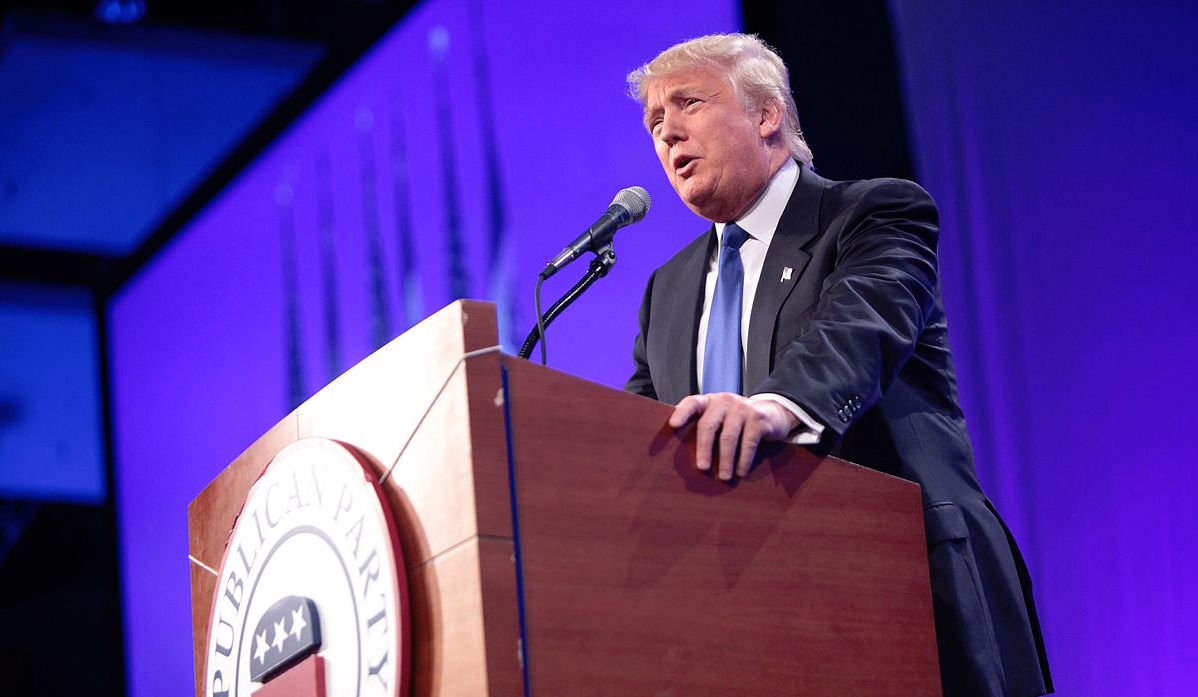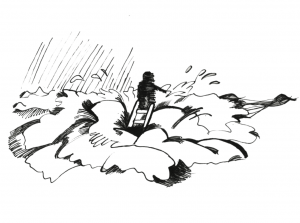This is a strange time in American politics to come of age.
But before we get into that, here’s a little about me: I’m from the Boston area. I’m an aspiring member of the media. My political views are varying degrees of left of center. And I’ve spent my time in school studying the Arab and Muslim worlds.
Add that to that the fact that I go to school in D.C., and I’m basically a caricature of everything that the supporters of Republican presidential nominee Donald Trump are loudly rejecting in this election. Which, if I’m being honest with myself, is something that makes me kind of proud.
It shouldn’t, since there’s more than enough blame to go around in this election season.
This election is my first as a voter. It will almost definitely, in some way or another, shape my thinking about politics. It would be a shame if the only thing I was able to take away from it was smugness.
I want something else. Something productive, and challenging, to learn from the chaos that is presidential politics in 2016.
There’s plenty out there to find. To start, it’s clear that wide swaths of this country feel ignored by their national institutions. This sense of alienation seems to be chief among the factors propelling Trump’s candidacy.
The resulting anti-establishment movement has the potential to destroy the Republican Party. Depending on who you ask, it may have already done so. But it also should spark some serious self-reflection among liberals, especially those like myself with political views that are very much still in development.
Has the Democratic Party worked to find a message that can give a sense of hope—or of any future at all, really—for Middle America? Not as far as I can tell.
I don’t often place myself in the shoes of Middle America. I’m usually far too busy dreaming up far-fetched ways to save the Middle East for that. But I could understand the outrage at coastal elites who seem to care far more about protecting mountains and trees than livelihoods.
I say this not to excuse the ideas that this outrage has produced. A lot has been said about the danger of the ideas put forth by Trump’s movement, and it’s pretty difficult to exaggerate the cruelty and idiocy of some of its proposed policies.
But, if the ideas are dismissible, the outrage isn’t. One of the qualities that I most admire about the American left is its willingness to accept, as a starting point, that when large blocks of a societal group claim to be facing some sort of structural obstacle, there probably exists a legitimate grievance.
This is the fairly basic form of respect that Democrats in this country extend to minority populations fighting to overcome the stubborn inequalities that still exist in our society.
But when it comes to the parts of this country that are mostly white, and care far more about their own slowly fading livelihoods than any larger notion of equality, the left seems to find it much harder to accept that there might actually be a problem.
Or, they see the problems, and just can’t be bothered to care. All of which makes it nearly impossible for liberals like me to offer a way forward for the parts of the country that we sometimes think of as dead weight on the journey of progress, if we think of them at all.
And, really, it shouldn’t be very hard for the Democratic Party to offer a vision of the future for Middle America that is more impressive than the one espoused by the Republican nominee. In terms of policy, it seems pretty clear at this point that Trump is a novice, if we’re being generous, or an idiot, if we’re being blunt.
It would only require that liberals put some real effort behind solving these problems. We just need to care, if only a little. For me, at least, the lesson of this election is that when you largely ignore a decent portion of the country, the neglected will go to great lengths to make themselves heard.
And after all, here at Georgetown, a lot of us are basically training to become part of the much-maligned “Establishment.” Given my own job aspirations, that could easily be where I’m heading, in some way or another.
If current polls hold, and the specter of Trump fades from the collective nightmares of much of the political class in this country, the root problems will remain. If we all get the jobs we’re angling for at the moment, we’ll have to deal with whatever protest candidate rides the next wave of anger in ten years, or 30. We might as well start caring now.
Given demographic changes, American liberals probably won’t need the middle of the country to win the electoral math in national elections in future decades. The young and left-leaning among us could continue to ignore those troubled regions and probably not see our political agenda suffer all that much. But that’s also a pretty cynical, if not downright immoral, way to view governing.
And beyond that, I can’t see how anyone who views the ongoing creation of a new American underclass with indifference can be considered progressive in any meaning of the word that I know.
Much has changed about the United States since it occurred to me, a month or so before my freshman year, that I’d be a senior in college in D.C. for the 2016 presidential election. As I saw it then, all the manic-ambition and frenetic energy of the capital would be focused toward one thing, and I could watch from a not-so-safe distance as the gears of our democracy churned in performing their most important function. It seemed like there could be nothing more fascinating than a front-row seat for the latest episode of the most significant bit of democratic politics that has ever taken place. I didn’t count on this process also being a little bit terrifying.
But from everything I remember of 2012 and 2008, and from what the people who have been voting in presidential elections for decades tell me, the rhetoric usually isn’t this bad. And, if national institutions and liberals like myself can find a way to engage again with the middle of the country, I don’t see any reason why things can’t improve.
Let’s make sure they do.







